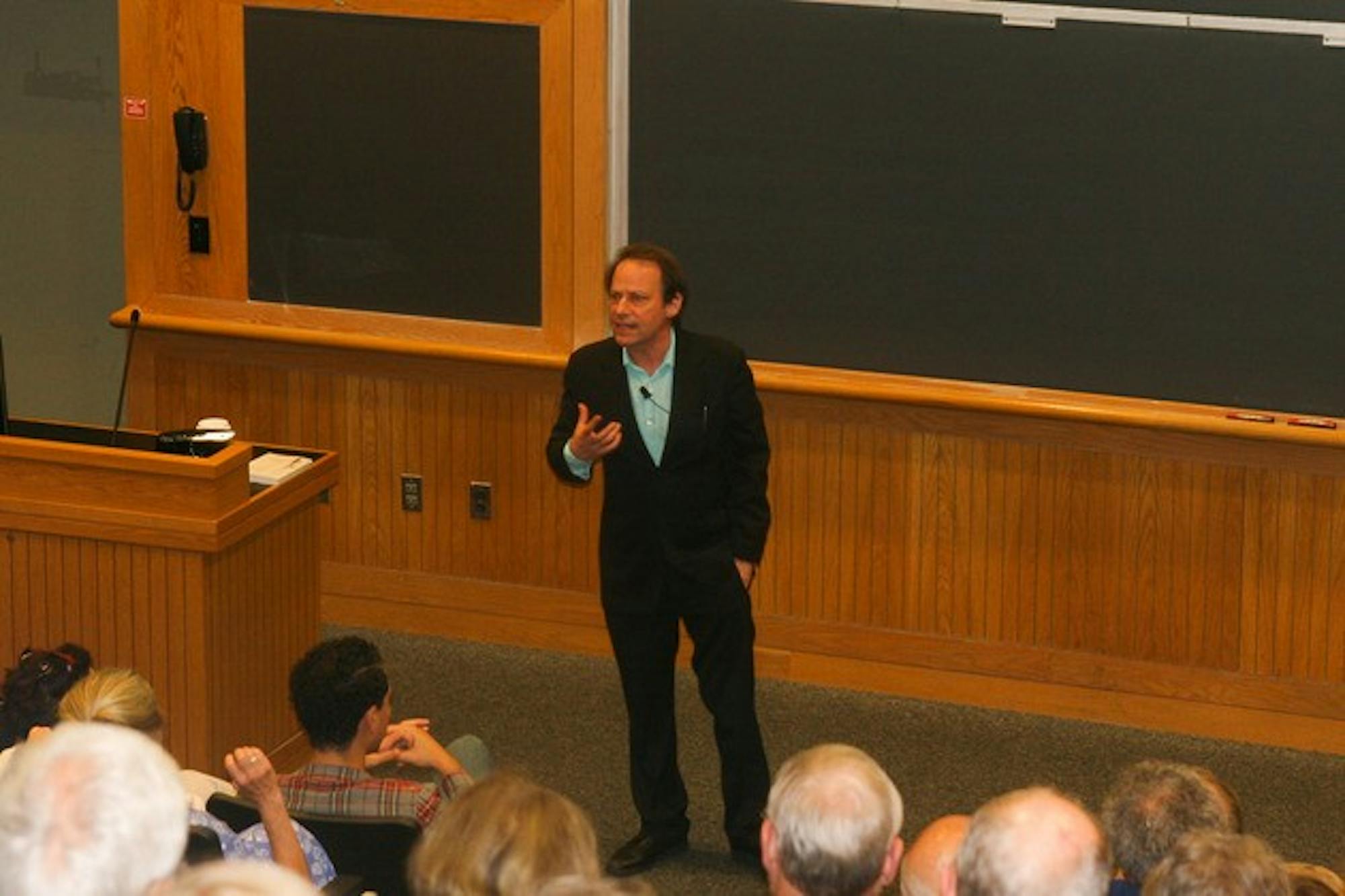Gopnik, whose essay collection "Paris to the Moon" reflects on his five years in Paris with his family, discussed the way in which France is seen as the pinnacle of gastronomic culture.
To highlight France's supremacy in the food world, Gopnik noted that the United Nations declared the French gastronomic meal a "world intangible heritage" in 2010.
A meal, he said, turns the human need to eat into a "wholly self-conscious desire," and eating is "the most ritualized thing we do as humans."
"We all associate France with food, with high and cherished traditions of eating," Gopnik said.
This association originated near the turn of the 19th century and was greatly aided by the development of the restaurant, which debuted around 1780 in Paris. Gopnik said the restaurant became a place for wealthier men and women to gather and dine beyond existing taverns.
These new dining establishments were clustered around the Palais Royal in Paris and brought the food and agricultural wealth of the countryside into the cities. This was also the dawn of the "slow food" movement in France, which focuses on the production of food from local sources.
The restaurants also became centers for romantic encounters between patrons.
Another key development of the Paris restaurant scene came in 1789, when the National Assembly deregulated the sale of alcohol and caffeine. Consumed with meals, these became staples of the Parisian food scene.
Gopnik commented on the relation between mass media and restaurant popularity, arguing that public debate over the quality of restaurants was essential to the boom of restaurant culture.
"That journalistic competition transforms the setting into a full-fledged food scene," he said.
Food journalism has recently experienced a great surge in popularity, especially in online platforms, Gopnik said. Until about 20 years ago, food was viewed as a "microcosm" to write about other topics, he said.
Despite a history of political upheaval in France throughout the 19th and 20th centuries, food has remained a constant, especially in conservative regions of France.
"This cultural tradition was more potent in some ways than an army of bayonets," Gopnik said. "Revolutions couldn't alter and dictators couldn't soil the tradition of food."
Gopnik noted the differences between food and politics in France and the United States. In France, more conservative members of society tend to be more traditional and embrace the "slow food" movement. In the U.S., it is generally those to the left of the political spectrum who embrace higher-quality and organic foods.
Jongmin Char '15 said Gopnik combined many ways of looking at food culture.
"I really appreciated how he wove together historical, philosophical and cultural details with contemporary culture, especially with food culture," she said. "Food is such as big part of contemporary culture, like with blogging and Instagram."
Char said she appreciated that Gopnik remained broad in his discussion, applying his discussion of food culture in France to all of Europe.
"I initially thought it would be very French-centered, but he expanded on European food culture in general, which was very instructive," she said.
Libby Cornwell '15 attended the lecture because she spent the spring on the Paris foreign study program and witnessed the importance of food to locals in the country.
"Seeing that dinners are a three-hour ordeal, it was really interesting to see how that all came about in France and see what it means in a social and historical context," she said.
The lecture, delivered to a packed crowd in the Rockefeller Center, was titled "Why Did Food Get French?" Sponsored by the French and Italian department, the lecture was the fourth installment in the Institute of French Cultural Studies' series on culture and gastronomy.
The next lecture in the series is today at 4:30 in Kemeny 105 and is titled "Cannibalism in Cond." Smith College French professor Dawn Fulton will deliver the lecture.
Abbie Kouzmanoff contributed reporting.




